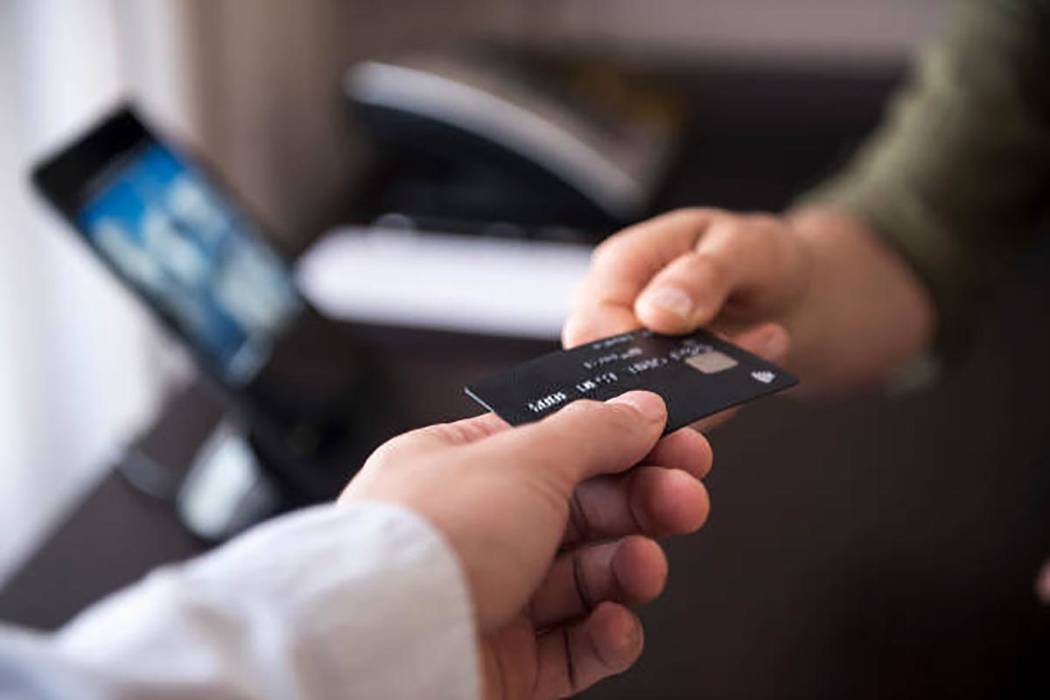5 credit card lessons you should learn if you’re in debt
When it comes to credit card debt, ignorance is most definitely not bliss.
Maybe no one ever explained how credit cards work to you or you’ve simply forgotten what you used to know. Whatever the reason, your credit card debt could be holding you back from owning a house, buying a car or simply enjoying a little financial freedom.
Consider this your refresher course on credit card debt.
1. Missing even one payment can wreck your finances
We get it — life happens. Maybe there was an unexpected expense or emergency situation. Whatever the reason, you could forget to pay the credit card bill.
But if you miss even one payment, it will show up on your credit report payment history.
And your payment history makes up 35% of your credit score, which means one missed credit card payment could wreck your credit score.
Your credit score is meant to demonstrate that you can make payments regularly, not necessarily that you have too much debt.
Your credit score can determine whether you’ll get approved for a loan, what the loan limit could be and your interest rate. It can even affect your ability to rent an apartment or get a job. In summary: credit score = important.
In addition, if you miss a payment, your issuer can increase your interest rate (along with your minimum payment). Lisa Rowan found that out when she forgot to pay her credit card one month and watched her interest rate shoot up from 13% to 25%.
2. Make more than the minimum payment
Carrying a balance on your credit card does not help your score — in fact it can hurt it — but even more important in the short term, you’ll have to pay the interest on your balance next month.
So if you’re only making the minimum payment and carrying a balance from month to month, you’ll end up paying more in interest than you initially owed, thanks to compound interest.
In case you need a quick refresher, compound interest is basically a credit card company charging you interest on your interest — check out this video explaining compound interest for a sweeter take on it.
By making more than the minimum payment you can rid yourself of credit card debt more quickly — and waste less money on that pesky interest.
3. Cash advances are pricier than using the card
If you’re already deep in credit card debt, you’re probably not flush with cash.
So when an emergency arises — like you needed that rent payment yesterday — it could be tempting to rely on a credit card cash advance for access to the money.
But if you didn’t know this already: Don’t. Just don’t.
Not only are cash advance interest rates higher than your regular credit card interest rate, you’ll also get socked with a cash advance fee — typically a percentage of the amount you’re borrowing.
And odds are, it will cost less to just pay with a card, even if you have to carry a balance. And there are services that let you pay almost anything by credit card.
We have five ways to avoid a credit card cash advance.
4. You can ask your credit card company for help
It can be tough to swallow your pride and ask for help.
But if you’re experiencing a temporary financial crisis — think you lost your job this month and the hot water heater just died — you should know you can ask your card issuer about their credit card hardship program.
A hardship program is a payment plan for your credit card — albeit one that’s probably more forgiving than your current payment schedule.
Pro Tip
The best time to use a hardship program is when you are facing a temporary money issue with a definite end in sight — taking a leave of absence from work to care for a family member, for instance.
The best way to find out what’s available is to call your credit card company with an explanation about why you need the program, how long you estimate you’ll need it for and how the program could help.
Entering a hardship program could damage your credit score in the short term. But if you’re certain you can make the payments, the program could actually help you prove a history of on-time payments and improve your credit score in the long term.
5. Residual interest can hit you after you pay off a card
If you learned one thing about credit card debt, it’s that you want to pay it off, right?
So if you look at your remaining credit card balance and think, “Today’s the day I can pay it off,” congratulations!
But depending on the day you make that final payment, you’ll probably still owe some more.
Why?
A little (or not so little) thing called residual interest — aka trailing interest.
Residual interest is the amount of additional interest you accrue between the billing date and your payment. If you’re paying off a substantial balance in one final swoop, the interest tacked onto next month’s statement could come as a very unwelcome surprise.
Here’s how you can avoid residual interest and save yourself from paying any additional interest on that credit card debt.
By learning these credit card lessons now you can pay off that debt faster, smarty pants.
Tiffany Wendeln Connors is a staff writer/editor at The Penny Hoarder.
This was originally published on The Penny Hoarder, a personal finance website that empowers millions of readers nationwide to make smart decisions with their money through actionable and inspirational advice, and resources about how to make, save and manage money.






















